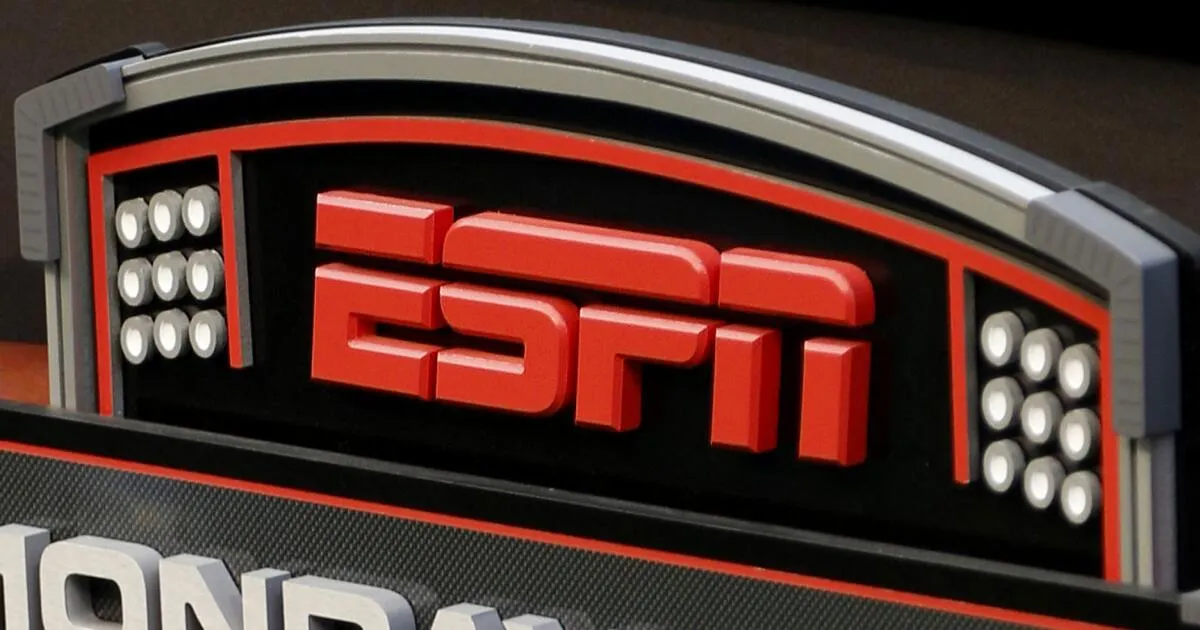
In a significant development in the world of television, more than 10 million YouTube TV customers lost access to major channels owned by Walt Disney Co., including ESPN and ABC, after contract negotiations collapsed late Thursday evening. This incident marks one of the largest television blackouts in recent history, affecting viewers who tune in for popular programs such as “SportsCenter with Scott Van Pelt” on ESPN and hit shows like “9-1-1: Nashville” and “Grey’s Anatomy” on ABC.
The Disney blackout was scheduled to take effect by 9 p.m. Thursday, following a prolonged dispute over carriage fees for Disney’s extensive portfolio of channels, which includes FX, Disney Jr., and National Geographic. YouTube TV, which has rapidly grown to become one of the largest pay-TV services in the United States, refused to meet Disney’s pricing demands, ultimately leading to the cessation of legal rights for distributing Disney’s channels.
A YouTube spokesperson expressed regret over the situation, stating, “We know this is a frustrating and disappointing outcome for our subscribers. We continue to urge Disney to work with us constructively to reach a fair agreement that restores their networks to YouTube TV.” To mitigate the impact of the blackout, YouTube TV announced that it would offer subscribers a $20 credit if the outage extends for an extended period.
This blackout is emblematic of the escalating tensions in the television industry. Programming companies like Disney have been pushing for increased fees for their channels to compensate for rising costs associated with broadcasting sports programming, including contracts with the NFL and NBA. In response, pay-TV providers such as YouTube are resisting these fee hikes, striving to retain their subscriber base amidst a trend of cord-cutting that has seen over 40 million homes ditch traditional pay-TV services in the last decade.
Disney has accused YouTube TV of leveraging its market power to negotiate unfair terms, stating, “Unfortunately, Google’s YouTube TV has chosen to deny their subscribers the content they value most by refusing to pay fair rates for our channels.” Disney has successfully negotiated agreements with six other pay-TV companies this year, including industry giants like Charter Spectrum and Comcast.
The fallout from this dispute highlights the challenges of negotiating distribution contracts in an increasingly competitive landscape. Disney's statement emphasized the value of its programming, particularly in live sports, which includes premier events such as college football and the NFL. With a market cap of $3 trillion, Google is accused of using its dominance to undermine industry-standard terms that Disney has successfully negotiated with other distributors.
In recent months, other major networks, including Fox Corp. and NBCUniversal, have expressed concerns that YouTube TV is utilizing its growing popularity to extract concessions. While Fox and NBCUniversal reached new distribution agreements without their channels going dark, Univision has not been as fortunate, with its channels unavailable on YouTube TV for nearly a month.
From YouTube TV's viewpoint, the company maintains that it is Disney that is demanding unreasonable terms. They argue that recent agreements with other networks, like NBCUniversal and Fox, demonstrate that Disney's expectations are out of step with industry norms. “Last week Disney used the threat of a blackout on YouTube TV as a negotiating tactic to force deal terms that would raise prices on our customers,” a YouTube TV representative stated.
This ongoing conflict is further complicated by recent personnel changes, including the departure of Disney’s former distribution chief to YouTube TV, which Disney attempted to block legally. The judge's decision allowed the executive to join YouTube TV, placing him on the opposite side of the negotiation table.
The duration of this blackout remains uncertain, as similar disputes in the past have led to extended outages. For instance, a distribution fee disagreement between Disney and DirecTV last year resulted in a 13-day blackout of Disney channels. Additionally, a recent conflict with Charter’s Spectrum service resulted in a 10-day blackout.
Viewers, particularly sports and news fans, will undoubtedly notice the absence of their favorite channels. College football fans could miss critical games on ESPN and ABC, along with a key “Monday Night Football” matchup featuring the Arizona Cardinals and Dallas Cowboys. Furthermore, local ABC stations, including KABC-TV in Los Angeles, will also be unavailable, affecting access to popular shows like “Jeopardy,” “Wheel of Fortune,” “Good Morning America,” and “Jimmy Kimmel Live.”